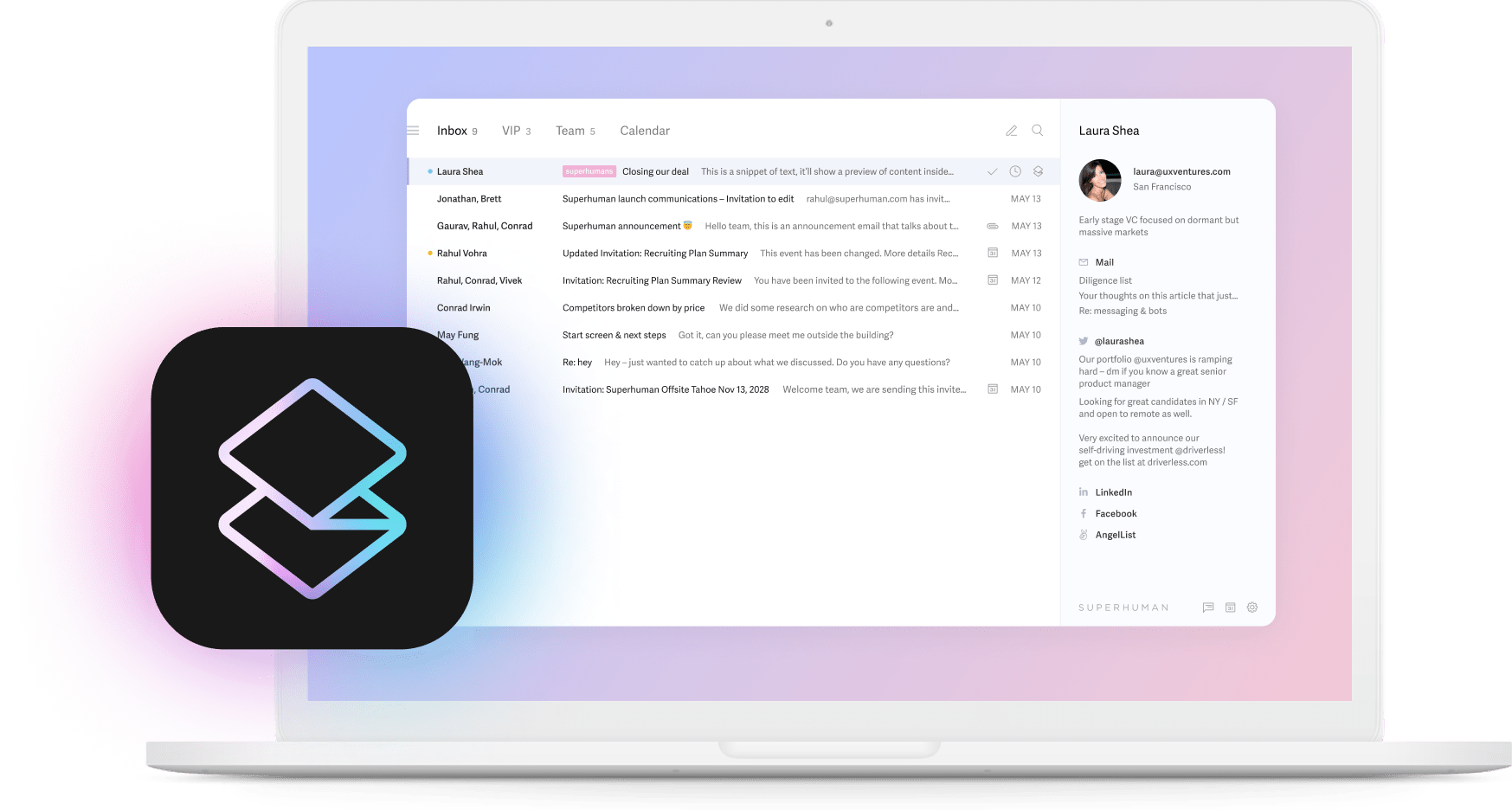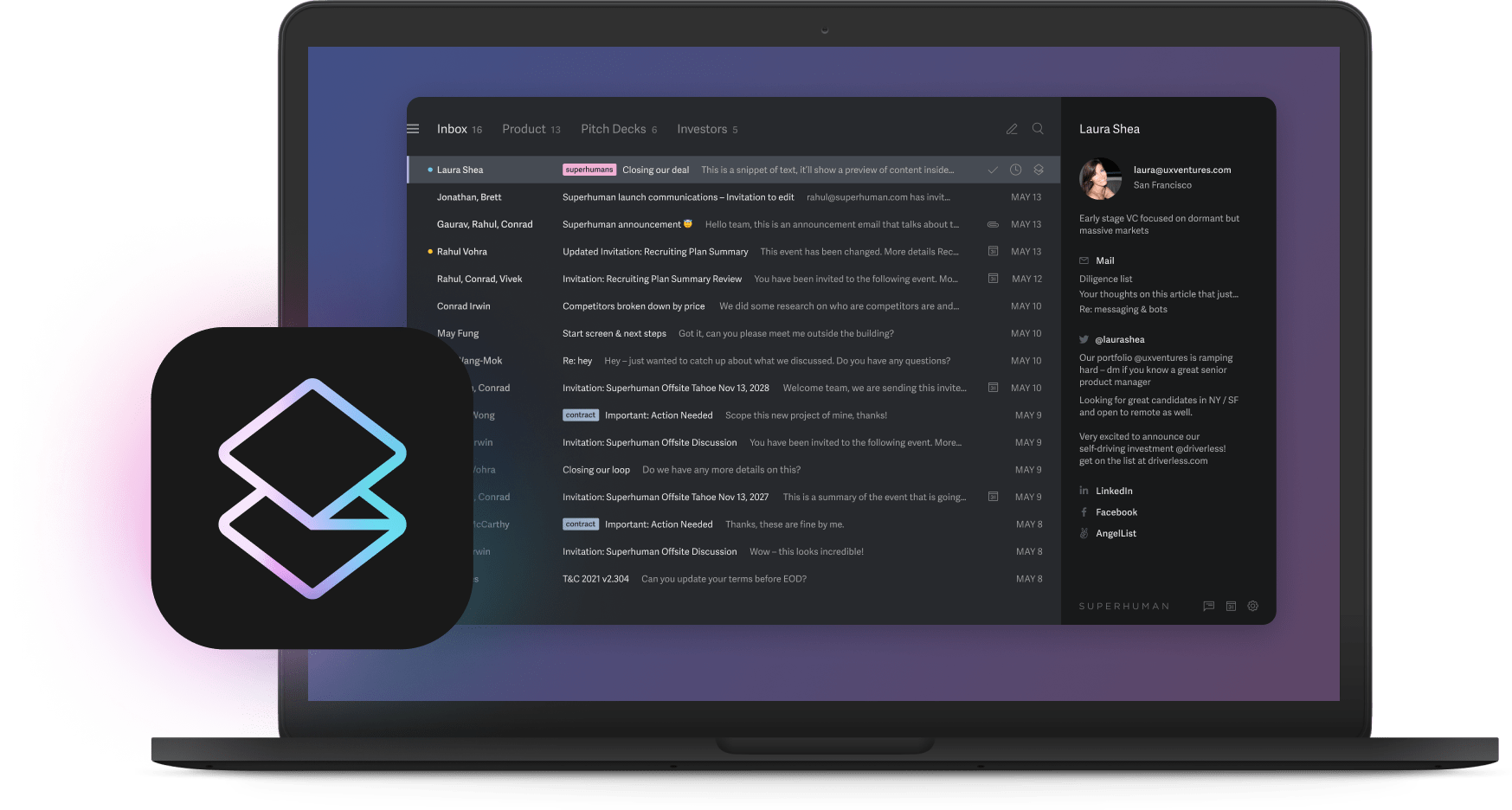
Effectiveness is all about getting the job done, while efficiency is about how quickly you do it. Companies often grapple with questions like, "Should we prioritize quality or speed?" and "How do we streamline sales processes without sacrificing effectiveness?"
The key is to find the sweet spot.
This article will explore how businesses can navigate the fine line between being effective vs. efficient to thrive in today's competitive landscape. We’ll cover:
What is being effective?
How to become more effective?
What is being efficient?
How to become more efficient?
Effective vs. Efficient: What are the key differences
How to build effective and efficient teams
What is being effective?
Being effective in business is about achieving your goals and getting the desired results. It's like hitting the target you set for yourself.
When a business is effective, it's doing things that matter and bringing about the desired outcomes. So, being effective is like making sure you get the job done the way you planned and reaching the goals you set for your company.
Let's say you want to start a new loyalty rewards program.
Focusing on effectiveness, you would weigh whether this program makes sense for your business and meets your customer's needs and goals. The program should produce your intended outcome and align with your company goals to be effective.
How to become more effective?
Want to be more effective at work? Here are some ideas to get you started as an effective leader:
- Be clear on your company roadmap: If you're not sure about your company goals, you won't be able to decide what solutions will be the most effective for your business. Effective solutions align with a company's goals, so it's important to clarify what you want and where you'd like your company to be 1-5 years from now.
- Create strategy and metrics: How do you measure effectiveness? By creating a strategic plan to execute your goals and setting KPIs (key performance indicators) and specific metrics that tie to your goals.
- Reevaluate your tactics: Dedicate time to reevaluate your company's current and future plans and long-term strategies. Are they contributing to your long-term goals? Or are they steering you away from them?
- Discuss with your team and stakeholders: Consider your employees and their opinions as you walk through these steps. Maybe a team retreat or state-of-the-company meetings can help spark some inspiration and direction.
- Elevate your email effectiveness: Superhuman offers powerful tools to streamline your email workflow and enhance effectiveness. Superhuman’s Split Inbox helps you organize your emails into different groups like "VIP," "Notifications," "Calendar," or "Team."
This way, you can focus on what's important and respond to the right people. It's like having separate folders for different kinds of messages. Choosing a specific group reduces context switching, so you can save time and make your responses effective. This tool allows you to prioritize and respond to those who matter most, making your email communication more purposeful and impactful.
Another useful tool is Superhuman AI. It helps you:
- Express your thoughts faster by jotting down phrases while maintaining your unique voice. This means you can articulate your ideas swiftly and effectively.
- Correct errors on the go as you type, boosting your typing speed by 30-50%. This feature ensures your messages are sent quickly without compromising clarity or accuracy, making communication more effective.
- Research a variety of topics directly within your emails. This feature enhances your focus and workflow, ensuring your emails are well-informed and effective when additional information is needed.
What is being efficient?
Being efficient means getting things done as best as possible with the least waste of time. It’s like finding the fastest route to your destination.
It's about making the most of your resources and getting the maximum output. Efficiency rewards you with consistent and repeatable results in the least amount of time, ensuring tasks are completed swiftly and effectively.
Going back to the loyalty program example. Being efficient here means putting a skilled team together to carry out the program and meet tight deadlines.
How to become more efficient?
Here are some ideas to get you started as an efficient leader:
- Optimize your company processes: Make a list of all of your company processes and ask your team for input on which ones they feel are bottlenecks and which ones they'd like to improve.
- Enable documentation: Start documenting your processes, ask your team to monitor their work over time, and identify where they feel a workflow can be automated, sped up, or improved.
- Streamline and automate: Streamline processes and automate to speed up workflows and make your team more productive.
If you need to send recurring emails, you can automate typing and save time with Superhuman Snippets. It lets you create reusable email templates and share them with your team to streamline recurring communications.
To start, hit Cmd+K (Mac) or Ctrl+K (Windows) → go to Snippets, and share your most valuable Snippets with your team. They can immediately use them by typing a few characters of the Snippet title — or your name!
With Superhuman, you can experience a blazingly fast email experience. All thanks to its extensive keyboard shortcuts. Speed up your email management without using the mouse, saving valuable time in your workflow.
Effective vs. Efficient: What are the key differences
Being effective and efficient might sound similar, but they have two meanings.
In his book Effective Executive, management consultant, educator, and author Peter Drucker states, "Efficiency is doing things right, effectiveness is doing the right thing."
Efficiency refers to how you do something; effectiveness means the quality of what you're doing and whether it's right for your business.
Efficiency is a productivity metric, while effectiveness is a quality metric. Efficiency focuses on optimizing profitability, while effectiveness focuses on the right solutions that are necessary for long-term business growth.
Effectiveness promotes long-term growth, while efficiency gets you there fast and keeps your teams productive.
Which comes first: Effectiveness or efficiency?
Now that we've established that effectiveness and efficiency are important for business success, which one should you focus on first?
Since high efficiency optimizes profits, many organizations focus on efficiency first to increase profitability in the short term.
The problem with focusing on efficiency is that sometimes businesses neglect effectiveness when chasing short-term profits. Peter Drucker says, "There is nothing so useless as doing efficiently that which should not be done at all."
In other words, don't invest effort into optimizing campaigns that are not right for your business. You could execute the most efficient system that produces short-term profit, but also waste time and money on the wrong system for your business' long-term goals.
This is why efficiency and effectiveness working in synergy is vital. Short-term profit doesn't always equate to long-term gains. Focusing on both is vital to short- and long-term growth.
Focusing on high effectiveness first will set you up for success. The reason is that you will be making the right things efficient instead of wasting time optimizing processes that are wrong for your business.
Improving effectiveness leads to efficiency. Once you know what's best for your business, use that as a jumping-off point to increase efficiency.
For example, before you develop efficient ways to sell your new product, you'd want to ensure the product is top-notch, aligns with the right goals, and will satisfy your customer base (aka make sure it's effective).
How to build effective and efficient teams
An effective and efficient team has a clear understanding of the big-picture goals and knows how to move swiftly to get there with ease and streamlined processes.
If you still have issues after implementing these practices, consider building a stronger foundation.
Solving these problems and creating efficient and effective teams can only happen when you lay the foundational groundwork:
- Transparency: Keep your team in the loop on how their performance and accomplishments tie to the ultimate goal. Aim for more visibility, which could mean using tools that house real-time data on a 360-degree dashboard (e.g. integration of a work management platform, CRM software. etc.)
- Clear and honest communication: You can't fix the issues if you don't know they're there. Create an environment where your team members feel heard and can be honest about their feelings and struggles. We offer some advice on communication in our article on how to manage a remote sales team. Clear communication can be even more challenging if you're a hybrid team. Luckily, we made a guide for that!
- Automation and efficiency: Invest in software and productivity tools so your team can automate processes instead of manually doing a lot of laborious tasks.
Speaking of productivity tools, meet Superhuman for Teams – a solution designed to elevate your team's overall effectiveness and efficiency.
With Superhuman for Teams, you can:
- Team Snippets: Seamlessly exchange message snippets and pre-formatted emails within your team. Foster a shared understanding for quicker and more consistent communication, amplifying the pace of your work.
- Team Snippets: Keep everyone in the loop with Read receipts, offering valuable context for follow-ups. Ensure no detail goes unnoticed, promoting thorough and informed discussions that help you make the right decisions.
- Team Reply Indicators: Instantly be aware of your team members' responses, preventing duplication of efforts and awkward overlaps in communication. This feature streamlines collaboration, making your team's efforts more impactful.
- Team Scheduling: Gain immediate insights into your team's availability. Schedule meetings and easily coordinate tasks, optimizing your workflow and ensuring efficient teamwork. No need to switch to your Google Calendar!
It’s no wonder that Superhuman saves teams over 10 million hours annually!

Wrapping up
Finding the right balance between efficiency and effectiveness is crucial for business success.
That's where Superhuman comes in—a straightforward and efficient email solution designed for busy teams. Unlike other email tools, Superhuman is built for speed. Users typically save around three hours per week on email tasks.
Curious to experience why Superhuman is known as the fastest email solution? Try Superhuman today and discover a quicker way to handle your emails.





